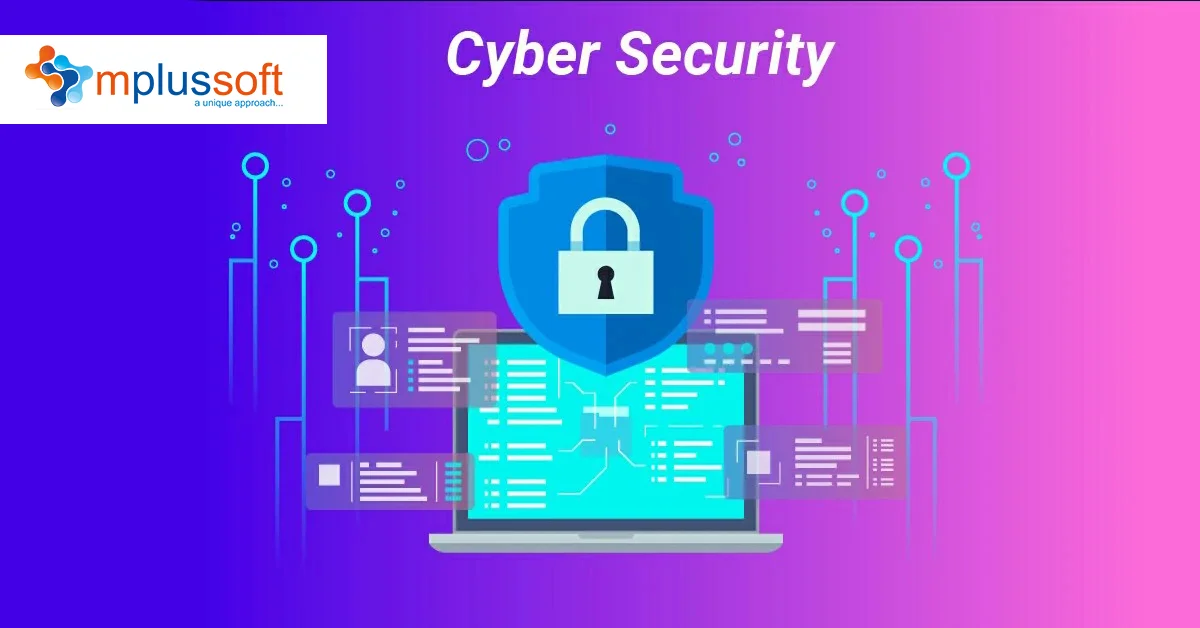Cyber Security

Cyber Security
Cybersafety is an issue that your company needs to stay ahead of. Cyber threats have become a huge issue plaguing the online community, and thus the need for cyber insurance has spiked. From unauthorized access to data, network breaches, es or computer system attack, businesses face a variety of different cyber threats every year. These threats can be quite costly and it is important for businesses to protect themselves from cybercrimes. The topic of cyber security has a lot to take in. It can be confusing or overwhelming. But here you will find useful advice about how to protect yourself from cyber security.
What is Cyber Security'
The term "cyber security" also known as Information Technology (IT) Security covers everything involved in protecting computers, networks, and data. It's a broad subject, encompassing everything from the basics of maintaining a strong password to sophisticated encryption and network security. As technology changes and hackers find new ways to attack, the definition of cyber security evolves.
The basics of cyber security include:
Personal protecting formation
If you're like most people, you store a lot of personal data on computers. That includes things like your Social Security number, bank account information, and credit card numbers. These pieces of information need to be protected so that they aren't stolen and misused.
Protecting computers.
Computers are more vulnerable to attack than most people realize. Viruses, Trojan, and other malicious software can steal personal information, destroy files, or steal money.
Protecting networks.
When most people think of cyber security, they think about protecting a personal computer. But in reality, every connected device - including computers, smartphones, and tablets - is a potential attack vector. It's essential that every connected device be secured.
Protecting data.
Data is vulnerable whenever it's stored on a computer, smartphone, or tablet. If it's on a server, it needs to be protected even more carefully.
Considering all the variety of potential attacks and threats, it's not surprising that cyber security is a multidisciplinary field.
Types of Cyber Threats
Cyber security is the protection or prevention of computer crime or online attacks. Cyber security is more than just protecting yourself against viruses and hackers; it's also about protecting sensitive information, such as credit card numbers, passwords, and bank account numbers.
There are many different types of cyber threats, including viruses, spyware, worms, trojan horses, phishing, and spam. These threats all represent an attempt to hijack your computer or steal your private information, or both.
Some viruses are spread by malicious email attachments or links embedded in e-mail messages. Other viruses are downloaded to your computer when you open an infected file.
Other forms of malware, such as spyware and worms, are installed by "drive-by downloads". These attacks happen when you open a webpage or open an attachment and your computer unknowingly downloads malicious code.
Trojan horses
often arrive as an e-mail attachment, but they can also arrive as infected files on websites or in instant messages.
Phishing attacks
are attempts to get you to reveal your password or other sensitive information. Phishing is most common in e-mail messages, but there are also phishing attacks in instant messaging programs.
Spam
is unsolicited e-mail messages that are sent to a large number of people (spammers). Spam typically contains advertising or offers of products.
Hackers have been using malware to encrypt personal and business data for years, and ransomware has become a particularly effective tool.
Ransomware
is a form of malware that locks a user's files, preventing them from accessing them unless the user pays a ransom.
Threats Businesses Face'
Many people underestimate the amount of business information they have available online. That's a problem because hackers are always on the lookout for opportunities to steal that information. That's why it's crucial that you take steps to secure your business information, and that you make a habit of regularly reviewing your accounts for suspicious activity.
Here are some of the most common types of cyber security threats businesses face:
Technical vulnerabilities:Malware and viruses are some of the most common types of cyberattacks. For a company, malware is malicious software - such as viruses, ransomware, and spyware - that infects a computer, device, or phone. Malware can steal your data, expose your systems to vulnerabilities, or perform other damaging activities.
Bad actors: A malicious hacker or group of hackers - also known as a cybercriminal - can use the internet to perform a variety of activities, but one of the most common is to steal your data. This can range from simple identity theft, in which someone steals your identity and uses it to open a new line of credit or take out a loan, to more sophisticated attacks.
Business email compromise:
A business email compromise, also known as BEC, is a targeted email scam. Typically, these emails are phishing scams, in which the email claims to be from a legitimate company, usually asking for money or personal information.
Social engineering:
Also known as social engineering, this attack uses imitation and deception to obtain sensitive information.Hackers may pretend to be legitimate sources to trick people into handing over sensitive information, such as bank account numbers or passwords.
Protect yourself against cyberattacks with these cyber safety tips
Cyber security is an increasingly important part of doing business online. Online shoppers are constantly on the lookout for ways to protect themselves from hackers.
Unfortunately, hackers are constantly evolving too. Just a few years ago, it was not uncommon for people to use unsecured networks at hotels, airports, and other public places to access sensitive information. These days, it's much harder to do that sort of thing. Hotels and airports are more secure, and hackers use increasingly sophisticated methods to steal information.

To stay safe online, follow these simple tips.
Use strong passwords: When setting up a new online account, use a complex password. That way, it won't be easy for hackers to break into.
Every account you use should have its own unique password. Make sure your password doesn't contain any obvious information, like the names of your family members or your hometown. Your password should be at least 12 characters long, preferably longer.
Use password management software: Password managers (like 1Password and LastPass) make keeping track of passwords much easier. (Many of them also generate strong passwords for you.)
Don't put in your credit card details at a website you've never heard of. It's common for hackers to set up fake websites with lookalike URLs to deceive shoppers.
Be suspicious of emails that ask for personal or financial information. Legitimate businesses will never ask you for confidential information via email or over the phone.
Never use public Wi-Fi for sensitive information. Public wireless networks are easy to hack, so never access your bank or credit card over a public network.
Security software is essential for keeping you safe online. Install security software on your home computer and mobile devices, and make sure it's updated regularly.
Your smartphone can also play an important role in your cyber safety. Encrypt your data, and wipe all your personal information from your phone if you think it's being lost or stolen.
Don't open email attachments from unknown sources. Hackers frequently use email attachments to install malware onto computers. Don't click on any attachments in emails, or save them to your computer. Instead, scan them to make sure they're not viruses.
Consider using two-step verification when registering an account online. With two-step verification enabled, you'll be asked to type in a code that is sent to your mobile phone when you sign in.
Conclusion
Cybersafety is an issue that your company needs to stay ahead of. Cyber threats have become a huge issue plaguing the online community, and thus the need for cyber insurance has spiked. From unauthorized access to data, network breaches, or computer system attacks, businesses face a variety of different cyber threats every year. These threats can be quite costly and it is important for businesses to protect themselves from cybercrimes. The topic of cyber security has a lot to take in. It can be confusing or overwhelming. But here you will find useful advice about how to protect yourself from cyber security.





